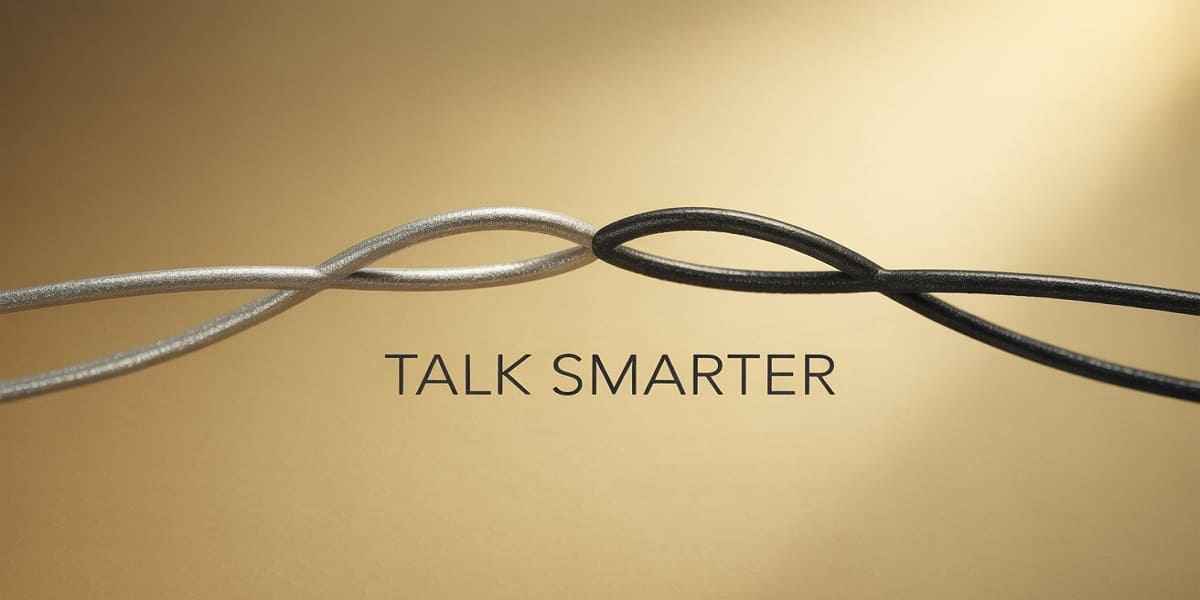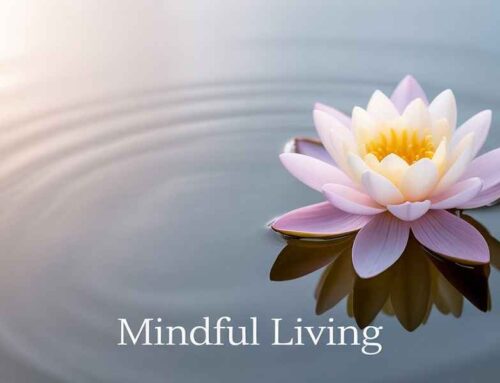
Are you ready to talk smarter and transform your relationships?
You know that feeling when a conversation just clicks? When you feel truly understood and the other person seems to get you completely? And then there’s the opposite: the misunderstandings, the awkward silences, the arguments that spiral out of control because no one is really listening.
Communication is the bedrock of all human connection, from the deepest romantic bonds to casual friendships and professional interactions. So why does it often feel so challenging? Why do we struggle to convey our thoughts, express our feelings and truly connect with those around us?
It’s not about being a charismatic orator or having a perfect vocabulary. It’s about understanding the subtle art and science of human interaction. It’s about mastering the communication secrets that unlock deeper understanding, build trust and foster genuine intimacy.
Imagine navigating disagreements with grace, expressing your needs clearly and truly hearing what others are trying to tell you. This isn’t just a dream; it’s an achievable reality when you learn to talk smarter.
This guide will reveal 12 essential communication secrets to elevate your relationships, making them stronger, more fulfilling and more resilient. Are you prepared to revolutionize the way you connect?
-
Master the Art of Active Listening
Do you truly listen or do you just wait for your turn to speak? This is a crucial distinction. Active listening is more than just hearing words. It’s about fully focusing on the speaker, understanding their message and acknowledging their feelings. When you actively listen, you show respect. You validate their experience.
How do you do it? First, put away distractions. Silence your phone. Make eye contact. This signals your engagement. Next, pay attention to both verbal and nonverbal cues. What is their body language saying? Are their words matching their tone? Then, resist the urge to interrupt. Let them finish their thoughts.
Finally, paraphrase what you’ve heard. Say something like, “So, if I’m understanding correctly, you’re feeling frustrated because…” This confirms your understanding and gives them a chance to clarify. It’s one of the most powerful communication secrets. As Stephen Covey famously said, “Most people do not listen with the intent to understand; they listen with the intent to reply.” Are you ready to truly understand?
-
Practice Empathy: Step into Their Shoes
Can you see the world from another’s perspective? Empathy is the ability to understand and share the feelings of another. It’s not about agreeing with them, but about recognizing and validating their emotions. When you empathize, you build bridges. You create a safe space for vulnerability.
How can you cultivate empathy? Imagine yourself in their situation. What would it feel like? What would you need? Ask open-ended questions that encourage them to share more. “How did that make you feel?” or “What was the hardest part about that experience?” Avoid judgment.
Everyone has their own reasons for their actions and feelings. When you offer empathy, you’re not condoning their behavior if it’s negative, but you are acknowledging their human experience. This is a profound way to talk smarter. “Could we but draw back the curtains of the mind,” wrote George Eliot, “we should find the passion of the world a thing so much more full of meaning than anything that can be made out of a book.”
-
Be Clear and Concise: Say What You Mean
Do your messages get lost in translation? Vagueness is a relationship killer. When you’re not clear, assumptions fill the void. This leads to misunderstandings and frustration. Learning to be clear and concise is a fundamental communication secret.
How do you achieve this? Before you speak, organize your thoughts. What is the single most important point you want to convey? State your message directly. Avoid rambling or using excessive jargon. Get straight to the point. Use simple language. Don’t beat around the bush. For example, instead of “I’m a little bothered by some things around here,” try “I’m feeling overwhelmed by the dishes piling up.”
Specificity makes a huge difference. Think about the impact of your words. Are they easy to grasp? Are they unambiguous? Clarity empowers you to talk smarter and avoid unnecessary conflict.
-
Choose Your Timing Wisely: The Right Moment Matters
Have you ever tried to have a serious conversation when someone is stressed or distracted? It rarely goes well. Timing is everything in effective communication. The right message at the wrong time can fall on deaf ears or even escalate tension. This strategic approach is one of the often-overlooked communication secrets.
How do you pick the right moment? Observe the other person. Are they calm? Are they open to discussion? Is there enough time to have a complete conversation without interruption? Avoid bringing up sensitive topics when someone is tired, hungry or preoccupied.
Find a quiet, private setting. Sometimes, simply asking, “Is this a good time to talk?” can save you a lot of grief. It shows consideration and respect for the other person’s state. When you time your conversations well, you increase the likelihood of a positive outcome. This is a clever way to talk smarter.
-
Use “I” Statements: Own Your Feelings
Do you blame others when you express your feelings? Using “You” statements often sounds accusatory. “You always make me feel…” This puts the other person on the defensive. Instead, use “I” statements. This is a powerful communication secret for expressing yourself without blame.
What are “I” statements? They focus on your feelings and experiences. They typically follow a structure like: “I feel [Emotion] when [Specific Behavior] because [Reason/Impact].” For example, instead of “You make me angry when you’re late,” try “I feel worried when you’re late because I worry something has happened to you.”
This allows you to express your emotions without attacking the other person. It invites understanding rather than conflict. When you own your feelings, you open the door to productive dialogue. This is a respectful way to talk smarter.
-
Understand Nonverbal Cues: Speak Without Words
Do you pay attention to what isn’t being said? A huge portion of our communication is nonverbal. Body language, facial expressions, gestures and tone of voice convey powerful messages. Ignoring these cues means missing out on vital information. Recognizing these signals is a key communication secret.
How do you read nonverbal cues? Pay attention to eye contact. Is it direct or averted? Note facial expressions. Do they match the words being spoken? Observe posture and gestures. Are they open or closed off? Consider their tone of voice. Is it calm, agitated or sarcastic?
Also, be aware of your own nonverbal signals. Are you conveying what you intend? Your body speaks volumes, often louder than your words. Mastering nonverbal communication helps you talk smarter and understand deeper. As Ralph Waldo Emerson observed, “What you are speaks so loudly, I cannot hear what you say.”
-
Give Constructive Feedback: Build, Don’t Break
When you need to offer criticism, do you do it in a way that helps or harms? Feedback is essential for growth and improvement in any relationship. However, poorly delivered feedback can create resentment and damage trust. Giving constructive feedback is a valuable communication secret.
How do you give constructive feedback? Focus on the behavior, not the person. Instead of “You’re so messy,” try “I noticed your clothes are on the floor.” Be specific about the impact of the behavior. “When your clothes are on the floor, I feel stressed because the room looks cluttered.”
Offer solutions or suggestions for improvement, if appropriate. Frame it as a desire for a positive outcome. “Would you be open to a system for putting away your clothes?” Deliver feedback privately and calmly. The goal is to help, not to shame. This approach allows you to talk smarter while fostering growth.
-
Practice the Art of Silence: Sometimes Less is More
Do you feel compelled to fill every silence? Sometimes, the most powerful communication happens when no words are spoken at all. Allowing for silence can give both parties time to think, process and formulate their thoughts. Embracing silence is an underappreciated communication secret.
When should you use silence? After asking a question, give the other person time to respond. Don’t jump in immediately. When someone is emotional, allow them space to feel without interrupting. During a disagreement, a moment of silence can de-escalate tension.
It shows patience and respect. It allows for deeper reflection. Silence can be incredibly impactful. It’s in the quiet moments that genuine understanding often takes root. It’s a subtle but effective way to talk smarter.
-
Set Boundaries: Define Your Space
Do you clearly communicate your limits? Healthy relationships require healthy boundaries. Without them, resentment builds and your needs go unmet. Setting clear boundaries is a vital communication secret for maintaining respect and self-worth.
How do you set boundaries? First, identify your limits. What are you comfortable with? What are your non-negotiables? Then, communicate these boundaries clearly and directly. For example, “I’m not available to answer work calls after 7 PM.” Or “I need to have alone time on Saturdays to recharge.”
Be firm but polite. Don’t apologize for your needs. Boundaries are about protecting your well-being, which ultimately benefits the relationship. When you respect your own boundaries, others are more likely to respect them too. This empowers you to talk smarter and maintain healthy relationships.
-
Learn to Apologize Effectively: Repair and Rebuild
When you make a mistake, do you genuinely apologize? A sincere apology can repair damage, rebuild trust and restore harmony. A weak or defensive apology, however, can make things worse. Learning to apologize effectively is a crucial communication secret.
What makes an apology effective? It needs to be sincere. Express genuine remorse. Acknowledge the specific action that caused harm. “I’m sorry I interrupted you.” Take responsibility for your actions. Avoid making excuses or shifting blame.
Explain the impact of your actions on the other person. “I know my interruption made you feel unheard.” Offer a plan to avoid similar mistakes in the future. “I’ll try harder to let you finish your thoughts before speaking.”
And most importantly, mean it. An apology is a powerful tool for reconciliation. It shows maturity and a desire to heal. This is a crucial way to talk smarter after a misstep.
-
Practice Vulnerability: Open Your Heart
Are you afraid to show your true self? Vulnerability is often seen as a weakness, but it’s actually a tremendous strength in relationships. It means being open, honest and authentic, even when it feels uncomfortable. Practicing vulnerability is a profound communication secret.
How do you practice vulnerability? Share your fears, hopes and insecurities. Express your true feelings, even if they’re difficult. This builds intimacy and trust. It shows the other person that you trust them enough to be yourself. It invites them to be vulnerable in return.
Remember, vulnerability is not about oversharing every detail; it’s about sharing what feels authentic and appropriate for the relationship. It’s a gradual process.
As Brené Brown, a renowned researcher on vulnerability, states, “Vulnerability is not winning or losing; it’s having the courage to show up and be seen when we have no control over the outcome.” When you’re vulnerable, you allow for deeper connection and truly talk smarter.
-
Cultivate Curiosity: Always Be Learning
Do you approach conversations with an open mind? Curiosity is the engine of understanding. When you’re genuinely curious about another person, you ask more questions, you listen more deeply and you discover new perspectives. Cultivating curiosity is an ongoing communication secret.
How do you cultivate curiosity? Ask open-ended questions that go beyond a simple “Yes” or “No.” “What are your thoughts on…?” or “Tell me more about…” Listen to their answers with genuine interest. Challenge your own assumptions. Be willing to learn from everyone you encounter.
Every person has a unique story and perspective to offer. Curiosity keeps your mind open and your conversations fresh. It prevents stagnation and fosters continuous growth in your relationships. It’s how you continuously learn to talk smarter.
Conclusion
Mastering the art of communication is a lifelong journey, not a destination. It requires self-awareness, empathy and a genuine desire to connect with others on a deeper level.
The 12 communication secrets discussed here – active listening, empathy, clarity, timing, “I” statements, nonverbal awareness, constructive feedback, strategic silence, boundaries, effective apologies, vulnerability and curiosity – are powerful tools. They aren’t just techniques; they’re shifts in mindset that will fundamentally change how you interact with the world.
By committing to these practices, you’ll find your relationships becoming richer, more resilient and more fulfilling. You’ll navigate disagreements with greater ease, build stronger bonds and experience the profound joy of truly understanding and being understood. Start small. Pick one or two of these communication secrets to focus on this week. Practice them in your everyday interactions. Notice the difference they make.
Remember, every conversation is an opportunity to strengthen a connection. Every interaction is a chance to talk smarter. What will you do today to enhance your communication skills and transform your relationships? The power to change your connections lies in your hands, one thoughtful conversation at a time. What step will you take first to unlock these communication secrets?
FAQs
Q1: What is the primary goal of learning to talk smarter?
A1: The primary goal is to transform and improve relationships, making them stronger, more fulfilling and more resilient through effective communication.
Q2: Why is active listening considered one of the most important communication secrets?
A2: Active listening is crucial because it demonstrates respect, validates the speaker’s experience and ensures you fully understand their message, both verbal and nonverbal, preventing misunderstandings.
Q3: How do “I” statements differ from “You” statements and why are they recommended?
A3: “I” statements focus on your feelings and experiences (Example, “I feel worried when…”), while “You” statements often sound accusatory (“You always make me…”). “I” statements are recommended because they express emotions without blaming, inviting understanding rather than conflict.
Q4: What role do nonverbal cues play in effective communication?
A4: Nonverbal cues (Body Language, Facial Expressions, Tone of Voice) convey a huge portion of our message, often more powerfully than words. Understanding and being aware of these cues helps you grasp the full meaning of a message and ensures your own nonverbal signals align with your intentions.
Q5: Why is choosing the right timing important for a conversation?
A5: The right timing is crucial because it ensures the other person is receptive and open to discussion. Bringing up sensitive topics when someone is stressed, distracted or tired can lead to poor outcomes and escalate tension.
Q6: How can empathy improve communication?
A6: Empathy improves communication by allowing you to understand and share the feelings of another person. It builds bridges, creates a safe space for vulnerability and validates their emotional experience, even if you don’t agree with their actions.
Q7: What does it mean to give “Constructive Feedback”?
A7: Constructive feedback means focusing on specific behaviors rather than attacking the person, explaining the impact of the behavior and offering solutions or suggestions for improvement. Its goal is to help and build, not to shame or break.
Q8: Why is silence sometimes a powerful communication tool?
A8: Silence can be powerful because it provides space for both parties to think, process information and formulate thoughts. It can de-escalate tension, show patience and respect and allow for deeper reflection and understanding.
Q9: How do clear boundaries contribute to healthy relationships?
A9: Clear boundaries are essential for healthy relationships because they define your limits and needs, preventing resentment and ensuring your well-being. Communicating boundaries clearly helps maintain respect and self-worth for all parties involved.
Q10: What are the key components of an effective apology?
A10: An effective apology is sincere, takes responsibility for the specific action that caused harm, explains the impact on the other person, avoids excuses and may include a plan to prevent similar mistakes in the future.
Q11: Why is vulnerability considered a strength in relationships?
A11: Vulnerability is a strength because it involves being open, honest and authentic, even when uncomfortable. It builds deep intimacy and trust, encouraging others to be vulnerable in return, fostering genuine connection.
Q12: How does cultivating curiosity enhance communication?
A12: Cultivating curiosity enhances communication by prompting you to ask more open-ended questions, listen more deeply and discover new perspectives. It keeps your mind open, prevents stagnation and fosters continuous growth in your relationships.
Q13: Is mastering communication a quick process?
A13: No, the post states that mastering the art of communication is a lifelong journey, requiring ongoing self-awareness, empathy and practice.
Q14: What is the suggested first step for someone looking to improve their communication skills?
A14: The post suggests starting small by picking one or two communication secrets to focus on and practice in everyday interactions.
Q15: What is the ultimate benefit of learning to talk smarter?
A15: The ultimate benefit is experiencing richer, more resilient and more fulfilling relationships and the profound joy of truly understanding and being understood.














